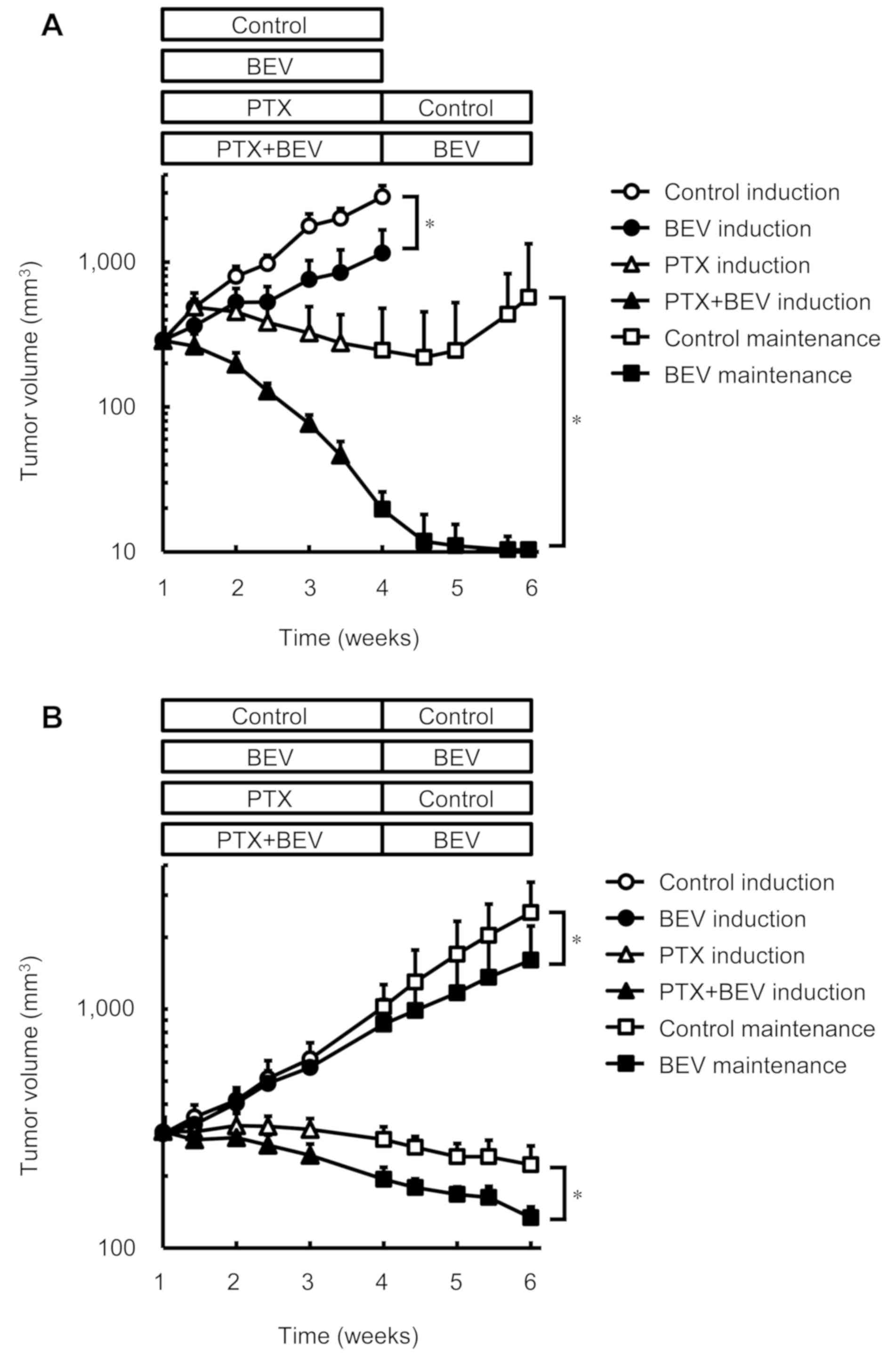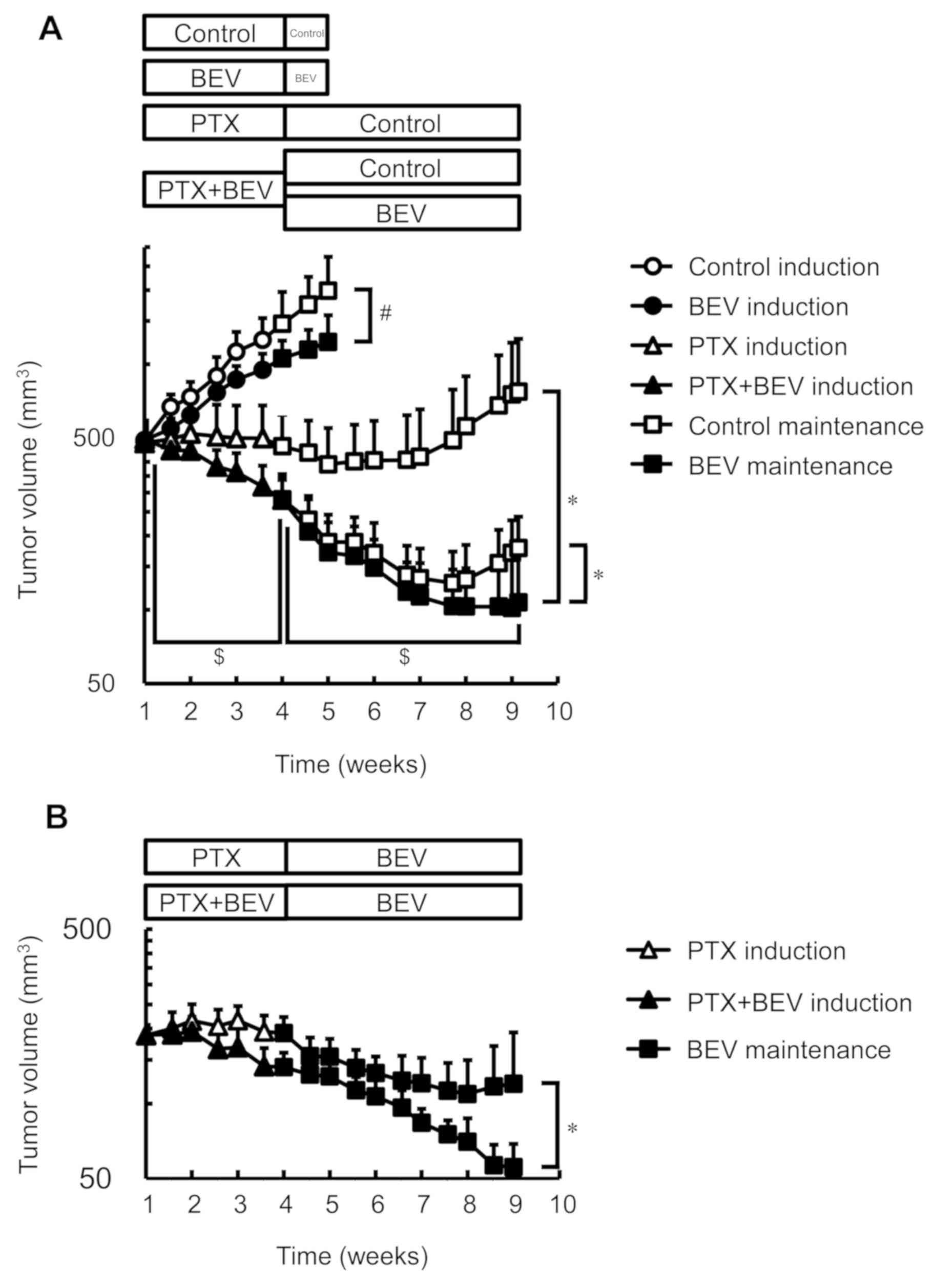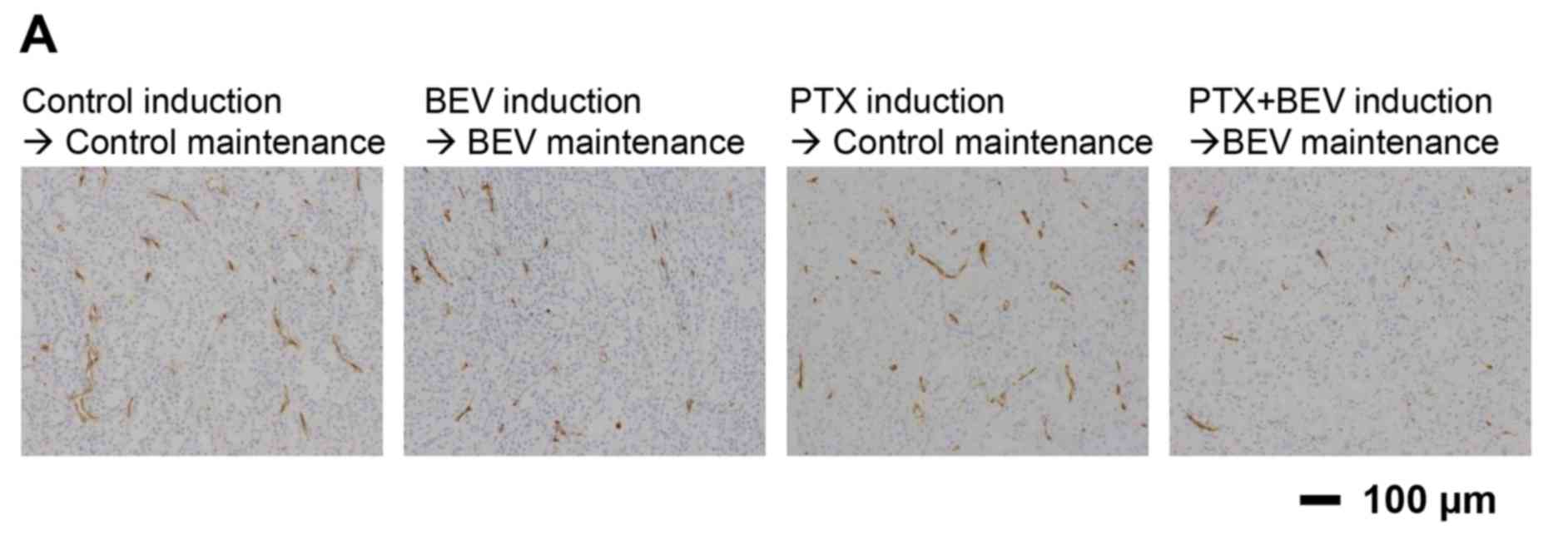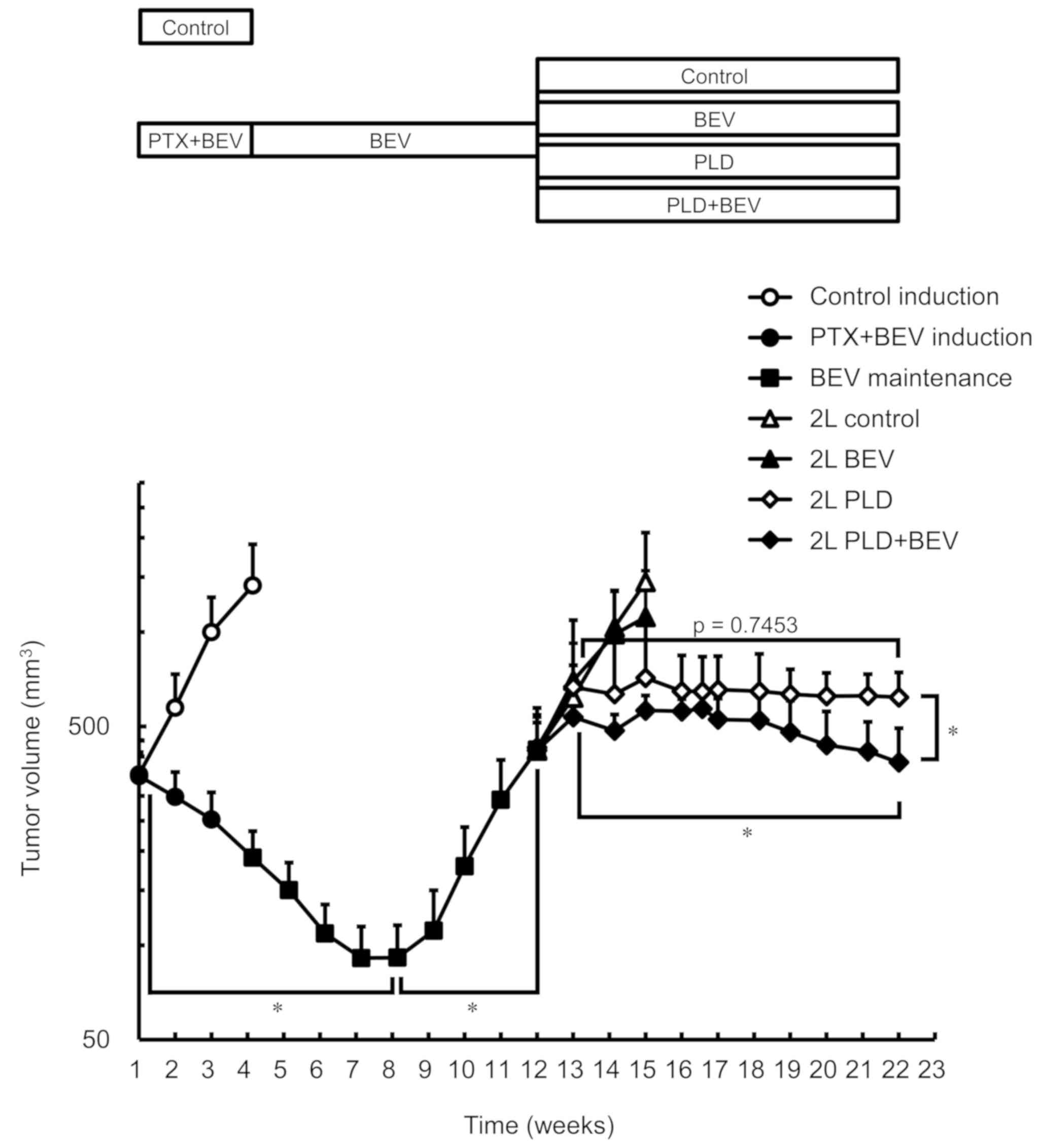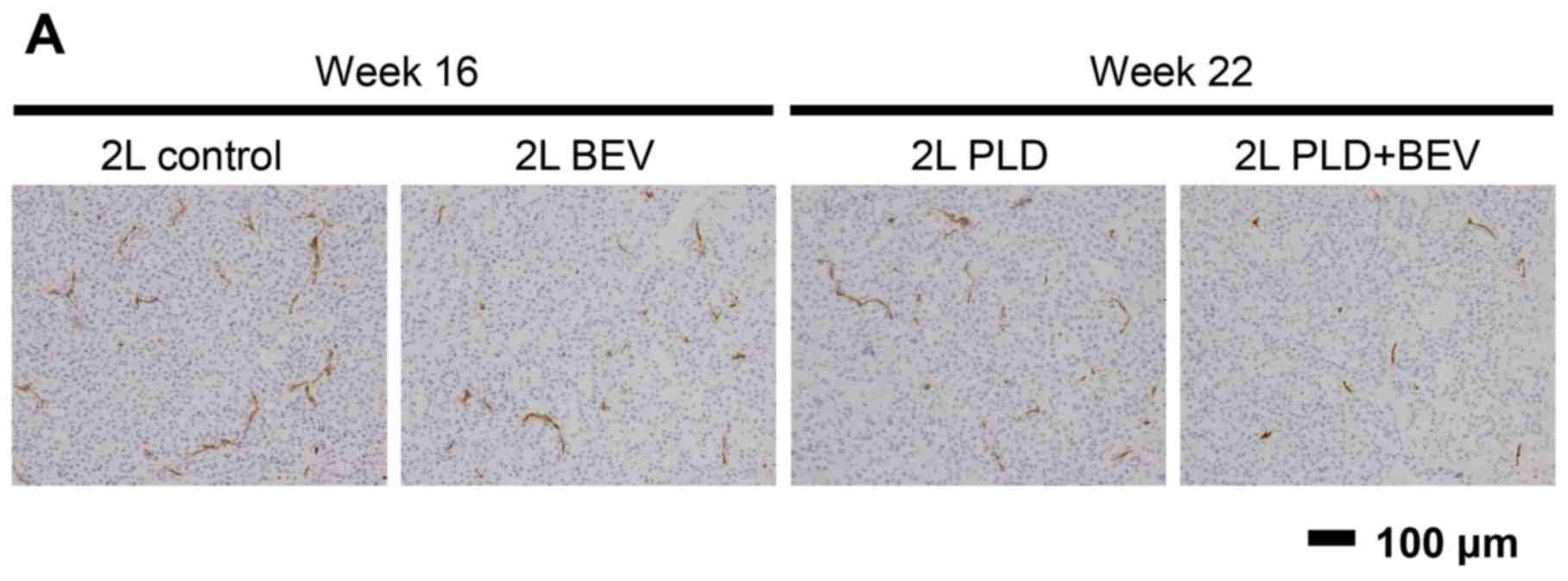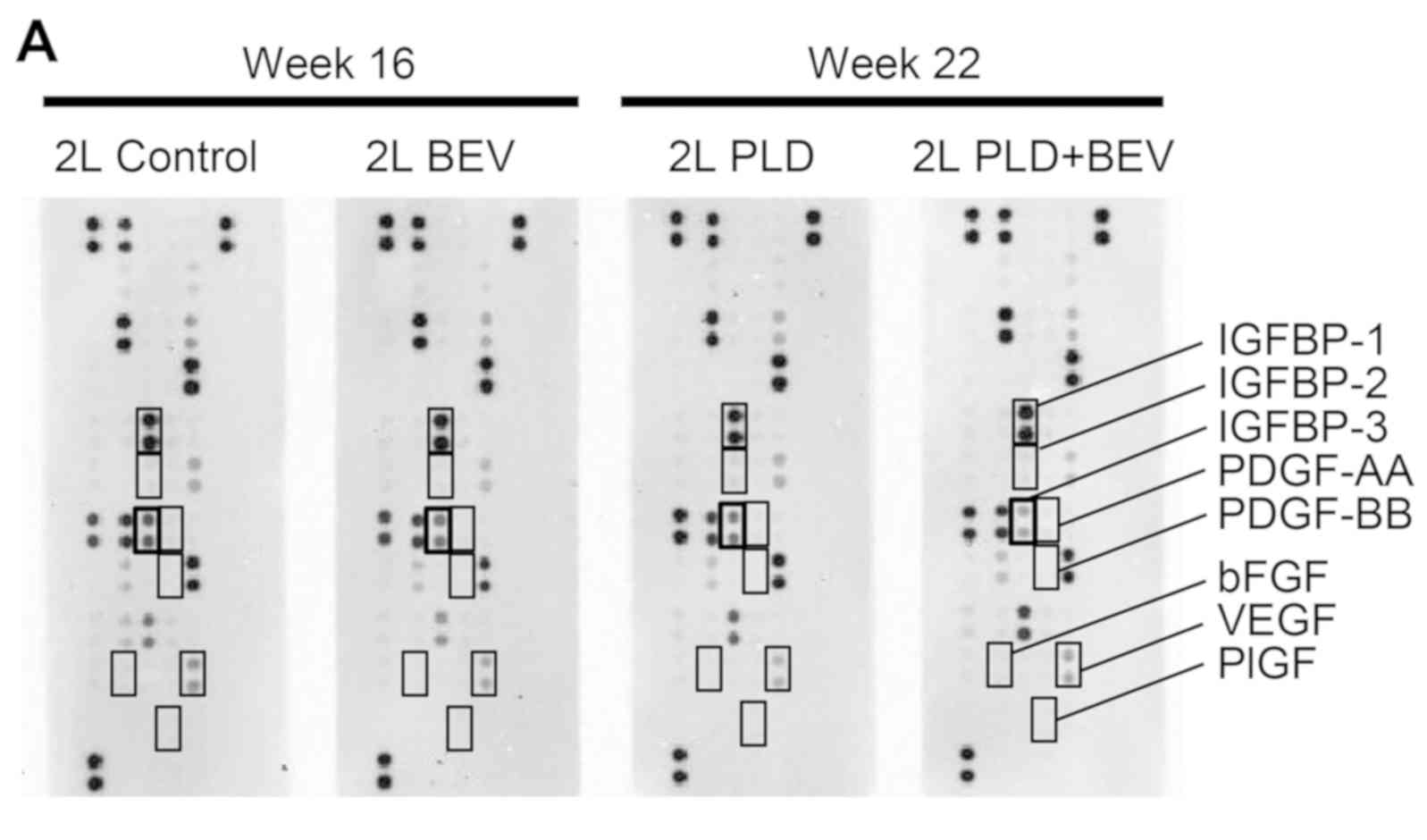|
1
|
Ferlay J, Soerjomataram I, Dikshit R, Eser
S, Mathers C, Rebelo M, Parkin DM, Forman D and Bray F: Cancer
incidence and mortality worldwide: Sources, methods and major
patterns in GLOBOCAN 2012. Int J Cancer. 136:E359–E386. 2015.
View Article : Google Scholar : PubMed/NCBI
|
|
2
|
Chan JK, Teoh D, Hu JM, Shin JY, Osann K
and Kapp DS: Do clear cell ovarian carcinomas have poorer prognosis
compared to other epithelial cell types? A study of 1411 clear cell
ovarian cancers. Gynecol Oncol. 109:370–376. 2008. View Article : Google Scholar : PubMed/NCBI
|
|
3
|
Sugiyama T, Kamura T, Kigawa J, Terakawa
N, Kikuchi Y, Kita T, Suzuki M, Sato I and Taguchi K: Clinical
characteristics of clear cell carcinoma of the ovary: A distinct
histologic type with poor prognosis and resistance to
platinum-based chemotherapy. Cancer. 88:2584–2589. 2000. View Article : Google Scholar : PubMed/NCBI
|
|
4
|
Itamochi H, Kigawa J and Terakawa N:
Mechanisms of chemoresistance and poor prognosis in ovarian clear
cell carcinoma. Cancer Sci. 99:653–658. 2008. View Article : Google Scholar : PubMed/NCBI
|
|
5
|
Mackay HJ, Brady MF, Oza AM, Reuss A,
Pujade-Lauraine E, Swart AM, Siddiqui N, Colombo N, Bookman MA,
Pfisterer J and Du Bois A; Gynecologic Cancer InterGroup, :
Prognostic relevance of uncommon ovarian histology in women with
stage III/IV epithelial ovarian cancer. Int J Gynecol Cancer.
20:945–952. 2010. View Article : Google Scholar : PubMed/NCBI
|
|
6
|
Piccart MJ, Bertelsen K, James K, Cassidy
J, Mangioni C, Simonsen E, Stuart G, Kaye S, Vergote I, Blom R, et
al: Randomized intergroup trial of cisplatin-paclitaxel versus
cisplatin-cyclophosphamide in women with advanced epithelial
ovarian cancer: Three-year results. J Natl Cancer Inst. 92:699–708.
2000. View Article : Google Scholar : PubMed/NCBI
|
|
7
|
Vasey PA, Jayson GC, Gordon A, Gabra H,
Coleman R, Atkinson R, Parkin D, Paul J, Hay A and Kaye SB;
Scottish Gynaecological Cancer Trials Group, : Phase III randomized
trial of docetaxel-carboplatin versus paclitaxel-carboplatin as
first-line chemotherapy for ovarian carcinoma. J Natl Cancer Inst.
96:1682–1691. 2004. View Article : Google Scholar : PubMed/NCBI
|
|
8
|
Köbel M, Kalloger SE, Huntsman DG, Santos
JL, Swenerton KD, Seidman JD and Gilks CB; Cheryl Brown Ovarian
Cancer Outcomes Unit of the British Columbia Cancer Agency,
Vancouver BC, : Differences in tumor type in low-stage versus
high-stage ovarian carcinomas. Int J Gynecol Pathol. 29:203–211.
2010. View Article : Google Scholar : PubMed/NCBI
|
|
9
|
Burger RA, Brady MF, Bookman MA, Fleming
GF, Monk BJ, Huang H, Mannel RS, Homesley HD, Fowler J, Greer BE,
et al Gynecologic Oncology Group, : Incorporation of bevacizumab in
the primary treatment of ovarian cancer. N Engl J Med.
365:2473–2483. 2011. View Article : Google Scholar : PubMed/NCBI
|
|
10
|
Morgan RJ Jr, Armstrong DK, Alvarez RD,
Bakkum-Gamez JN, Behbakht K, Chen LM, Copeland L, Crispens MA, De
Rosa M, Dorigo O, et al: Ovarian Cancer, Version 1.2016, NCCN
Clinical Practice Guidelines in Oncology. J Natl Compr Canc Netw.
14:1134–1163. 2016. View Article : Google Scholar : PubMed/NCBI
|
|
11
|
Masi G, Salvatore L, Boni L, Loupakis F,
Cremolini C, Fornaro L, Schirripa M, Cupini S, Barbara C, Safina V,
et al BEBYP Study Investigators, : Continuation or reintroduction
of bevacizumab beyond progression to first-line therapy in
metastatic colorectal cancer: Final results of the randomized BEBYP
trial. Ann Oncol. 26:724–730. 2015. View Article : Google Scholar : PubMed/NCBI
|
|
12
|
Presta LG, Chen H, O'Connor SJ, Chisholm
V, Meng YG, Krummen L, Winkler M and Ferrara N: Humanization of an
anti-vascular endothelial growth factor monoclonal antibody for the
therapy of solid tumors and other disorders. Cancer Res.
57:4593–4599. 1997.PubMed/NCBI
|
|
13
|
Braghiroli MI, Sabbaga J and Hoff PM:
Bevacizumab: Overview of the literature. Expert Rev Anticancer
Ther. 12:567–580. 2012. View Article : Google Scholar : PubMed/NCBI
|
|
14
|
Crossin KL and Carney DH: Evidence that
microtubule depolymerization early in the cell cycle is sufficient
to initiate DNA synthesis. Cell. 23:61–71. 1981. View Article : Google Scholar : PubMed/NCBI
|
|
15
|
Gabizon AA: Pegylated liposomal
doxorubicin: Metamorphosis of an old drug into a new form of
chemotherapy. Cancer Invest. 19:424–436. 2001. View Article : Google Scholar : PubMed/NCBI
|
|
16
|
Pérez-López ME, Curiel T, Gómez JG and
Jorge M: Role of pegylated liposomal doxorubicin (Caelyx) in the
treatment of relapsing ovarian cancer. Anticancer Drugs.
18:611–617. 2007. View Article : Google Scholar : PubMed/NCBI
|
|
17
|
Fogh J, Wright WC and Loveless JD: Absence
of HeLa cell contamination in 169 cell lines derived from human
tumors. J Natl Cancer Inst. 58:209–214. 1977. View Article : Google Scholar : PubMed/NCBI
|
|
18
|
Nozawa S, Tsukazaki K, Sakayori M, Jeng CH
and Iizuka R: Establishment of a human ovarian clear cell carcinoma
cell line (RMG-I) and its single cell cloning - with special
reference to the stem cell of the tumor. Hum Cell. 1:426–435.
1988.PubMed/NCBI
|
|
19
|
Holm S: A simple sequentially rejective
multiple test procedure. Scand J Stat. 6:65–70. 1979.
|
|
20
|
Belotti D, Vergani V, Drudis T, Borsotti
P, Pitelli MR, Viale G, Giavazzi R and Taraboletti G: The
microtubule-affecting drug paclitaxel has antiangiogenic activity.
Clin Cancer Res. 2:1843–1849. 1996.PubMed/NCBI
|
|
21
|
Naumova E, Ubezio P, Garofalo A, Borsotti
P, Cassis L, Riccardi E, Scanziani E, Eccles SA, Bani MR and
Giavazzi R: The vascular targeting property of paclitaxel is
enhanced by SU6668, a receptor tyrosine kinase inhibitor, causing
apoptosis of endothelial cells and inhibition of angiogenesis. Clin
Cancer Res. 12:1839–1849. 2006. View Article : Google Scholar : PubMed/NCBI
|
|
22
|
Iwai T, Sugimoto M, Harada S, Yorozu K,
Kurasawa M and Yamamoto K: Continuous administration of bevacizumab
plus capecitabine, even after acquired resistance to bevacizumab,
restored anti-angiogenic and antitumor effect in a human colorectal
cancer xenograft model. Oncol Rep. 36:626–632. 2016. View Article : Google Scholar : PubMed/NCBI
|
|
23
|
Granata R, Trovato L, Lupia E, Sala G,
Settanni F, Camussi G, Ghidoni R and Ghigo E: Insulin-like growth
factor binding protein-3 induces angiogenesis through IGF-I- and
SphK1-dependent mechanisms. J Thromb Haemost. 5:835–845. 2007.
View Article : Google Scholar : PubMed/NCBI
|
|
24
|
Slomiany MG and Rosenzweig SA: Autocrine
effects of IGF-I-induced VEGF and IGFBP-3 secretion in retinal
pigment epithelial cell line ARPE-19. Am J Physiol Cell Physiol.
287:C746–C753. 2004. View Article : Google Scholar : PubMed/NCBI
|
|
25
|
Slomiany MG and Rosenzweig SA:
IGF-1-induced VEGF and IGFBP-3 secretion correlates with increased
HIF-1 alpha expression and activity in retinal pigment epithelial
cell line D407. Invest Ophthalmol Vis Sci. 45:2838–2847. 2004.
View Article : Google Scholar : PubMed/NCBI
|
|
26
|
Duyndam MC, van Berkel MP, Dorsman JC,
Rockx DA, Pinedo HM and Boven E: Cisplatin and doxorubicin repress
vascular endothelial growth factor expression and differentially
down-regulate hypoxia-inducible factor I activity in human ovarian
cancer cells. Biochem Pharmacol. 74:191–201. 2007. View Article : Google Scholar : PubMed/NCBI
|
|
27
|
Yanagisawa M, Yorozu K, Kurasawa M, Nakano
K, Furugaki K, Yamashita Y, Mori K and Fujimoto-Ouchi K:
Bevacizumab improves the delivery and efficacy of paclitaxel.
Anticancer Drugs. 21:687–694. 2010.PubMed/NCBI
|















